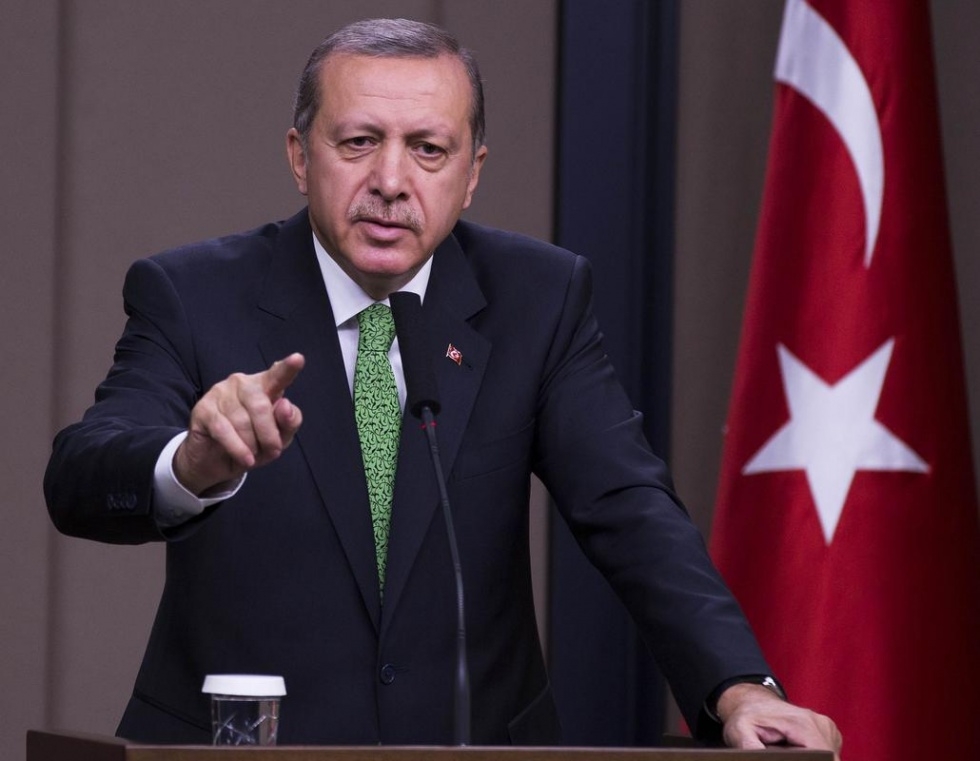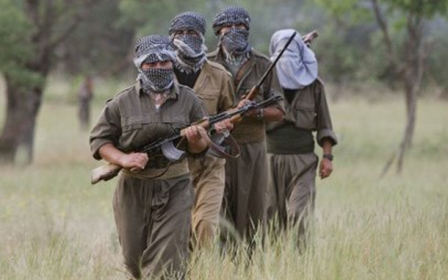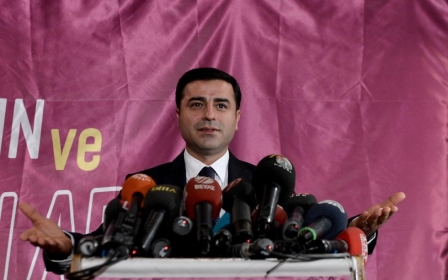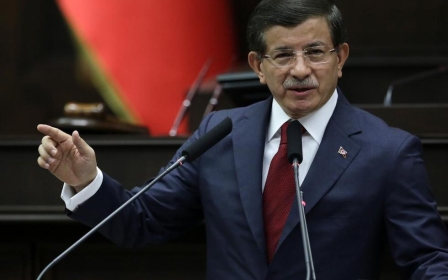Turkey’s mega projects: Pipe dreams or game-changers?

Buoyed by political stability and rampant economic growth for much of the past decade, Turkey has set its sights on mega projects such as the world’s busiest airport, intercontinental bridges and tunnels amongst others. But dark clouds of environmental neglect, nepotism and disregard for regulations hang over many of these projects and a new climate of instability and economic uncertainty are raising questions about the cost of financing.
Proponents of such major development projects see this as Turkey’s march toward becoming a fully developed and even more prosperous country, saying a resource-poor country can generate wealth through large-scale construction projects. But critics are insistent that regulations are being violated or ignored, and the massive environmental damage these projects could cause will hurt the country even more in the long term.
Erdal Tanas Karagol, a researcher at the economics department of the pro-government SETA think tank, says Turkey needs such projects in order to be able to benefit from a changing world order where the centres of power are shifting eastward.
“We need all these projects that improve our rail, air and other links because Turkey is trying to position itself as an energy and trade hub for both the Middle East and Central Asia,” Karagol told Middle East Eye.
According to Tuna Ozcuhadar, a designer who specialises in sustainable living models, these major projects are not properly thought through and are only seen as a means for the government to line its own pockets and those of its supporters.
“When designing big structures one needs to ensure they are dynamic and that they make it easier for the local community to benefit from them and from their environment. This is not the case with this old centralist mindset that exists at the moment,” he told MEE.
“These people [the government] see these big construction projects as purely a source to make money for themselves and those close to them,” he added.
High-risk premium
Now with the threat of instability hanging over the country as Turkey launches a major assault on groups such as the Kurdistan Workers Party (PKK) and the Islamic State (IS), and an economy that is struggling to even come close to the heady heights it scaled in the last decade, there is a risk that some of these projects - those whose work is yet to be commenced or are in the initial stages of construction - might become white elephants bearing witness to the folly of dreams of grandeur while having already caused serious environmental damage.
In Karagol’s view, the impact of growing instability and a turgid economy is merely a short-term one and will have no real effect in the medium to long term.
“The security situation and economic conditions might lead to a higher cost of financing in the short-term due to high-risk premiums and might even lead to postponements on some fronts, but will never result in total cancelations because these projects are vital for Turkey,” he said.
While some of the more fanciful projects such as building a man-made canal as an alternative for ships transiting the Bosphorus Strait are not being proclaimed as loudly any longer, the authorities insist that work on projects such as Istanbul’s third airport and others will continue unabated. In some cases work is going on despite court orders banning such activity.
Ever expanding Istanbul
Many of these grand projects are located in Istanbul and its environs as both the city’s population - estimated to be around 14 million - and geographic boundaries continue to expand.
Following decades of infrastructural neglect, even an ambitious drive to improve and expand the city’s transport and underground rail network, which includes the Marmaray link that became operational in October 2013 - a stretch of which comprises a 1.4km tunnel passing under the Bosphorus to connect the Asian and European sides of the city and which was an idea first dreamed up by Ottoman Sultan Abdulhamid in 1861 - has failed to meet growing demand. The city now has approximately 132km of rail links, most of which was built in the last 15 years, but which still remains a miniscule amount when compared to other global cities.
There is little doubt that Istanbul needs another airport on its European side as the current Ataturk International Airport struggles to cope with existing demand and there is no land available for expansion. However, the location of the third airport in the north of the city, home to most of its forests and water basins, the flouting of environmental regulations and granting of the construction contract to companies with close ties to the government has critics up in arms.
Ozcuhadar believes that although existing environmental and other regulations are not sufficient, it would still help if they were not violated so blatantly.
“The main problem of the last 10 years or so has been the violation of all laws and regulations, not just those related to the environment,” he said.
The third airport carries added significance for the authorities since they see it as a major step toward attaining their goal of almost doubling the number of visitors by 2023 to some 60 million, in hopes of generating income worth $80bn. Combined with the major expansion undertaken by flag carrier Turkish Airlines in recent years, air passenger numbers have increased manifold over the past decade. The airport is expected to possess an annual capacity of serving 150 million passengers.
There might be some environmental damage caused as a result of such mega projects but the benefits will far outweigh any such damage, says Karagol.
“A simple cost-benefit analysis is enough to show that these projects will have high benefits for us compared to any environmental or other damage they cause,” he said.
Ozcuhadar insists that the bigger picture needs to be taken into account for such projects, as tourism, environmental factors and security are all interlinked.
“What tourist is going to come if the threat of suicide bombings exists or if a place lacks proper water supply?”
The same environmental concerns apply for the third Bosphorus Bridge being built and which is expected to be completed later this year. Its location in the northern area of the city and the massive motorway being constructed on both sides of the bridge in order to create another route for road traffic from Anatolia to Thrace have led to outrage that thousands of trees are being felled and massive swathes of forestland damaged for a project that might not even be able to ease traffic congestion.
“No doubt the city centre will shift slightly northwards with these projects and cause damage to the forests and water sources. This can’t be good for anyone. Additional development is sure to follow,” said Ozcuhadar.
He added, “There are studies that say that the third bridge and connecting roads will only absorb three percent of the city’s traffic. What is the point in causing so much damage for such meagre gain?”
For Karagol, however, these projects are of immense significance for Istanbul.
“With the gradual shift of the global base of economic and political power toward emerging countries, Istanbul in particular needs such mega projects to position itself to compete with the likes of London and other bases of power,” he said.
Striking a balance
The latest mega project to come under fire and become the target of protestors is the approximately 2,000km Green Road project in the country’s Black Sea region. The project has been advanced as an opportunity to create jobs and promote tourism-related investments in the region to make the utmost use of its unspoiled combination of highland greenery and sea.
Last month saw clashes between security forces and local protestors who say this project will destroy the very same unspoiled nature that it is trying to promote. Local media reports say that work is continuing at some sites despite a local court ordering a halt to construction activity. The construction of hundreds of hydroelectric power stations in the region is also a major point of contention.
The Justice and Development Party (AKP), which has been in power for more than a decade now, takes enormous pride in the infrastructure and road projects implemented during its tenure. Its members often cite that it has overseen the construction of more than 17,000km of dual carriageways in the country and the establishing of more than 22 universities with every one of the 81 provinces in the country now boasting a university.
Turkey, like most other developing countries, needs to strike the right balance while initiating such mega projects to ensure that it doesn’t destroy the very things that draw visitors to the country and in order to not polarise society on yet another front while making it even more attractive for investment.
New MEE newsletter: Jerusalem Dispatch
Sign up to get the latest insights and analysis on Israel-Palestine, alongside Turkey Unpacked and other MEE newsletters
Middle East Eye delivers independent and unrivalled coverage and analysis of the Middle East, North Africa and beyond. To learn more about republishing this content and the associated fees, please fill out this form. More about MEE can be found here.




